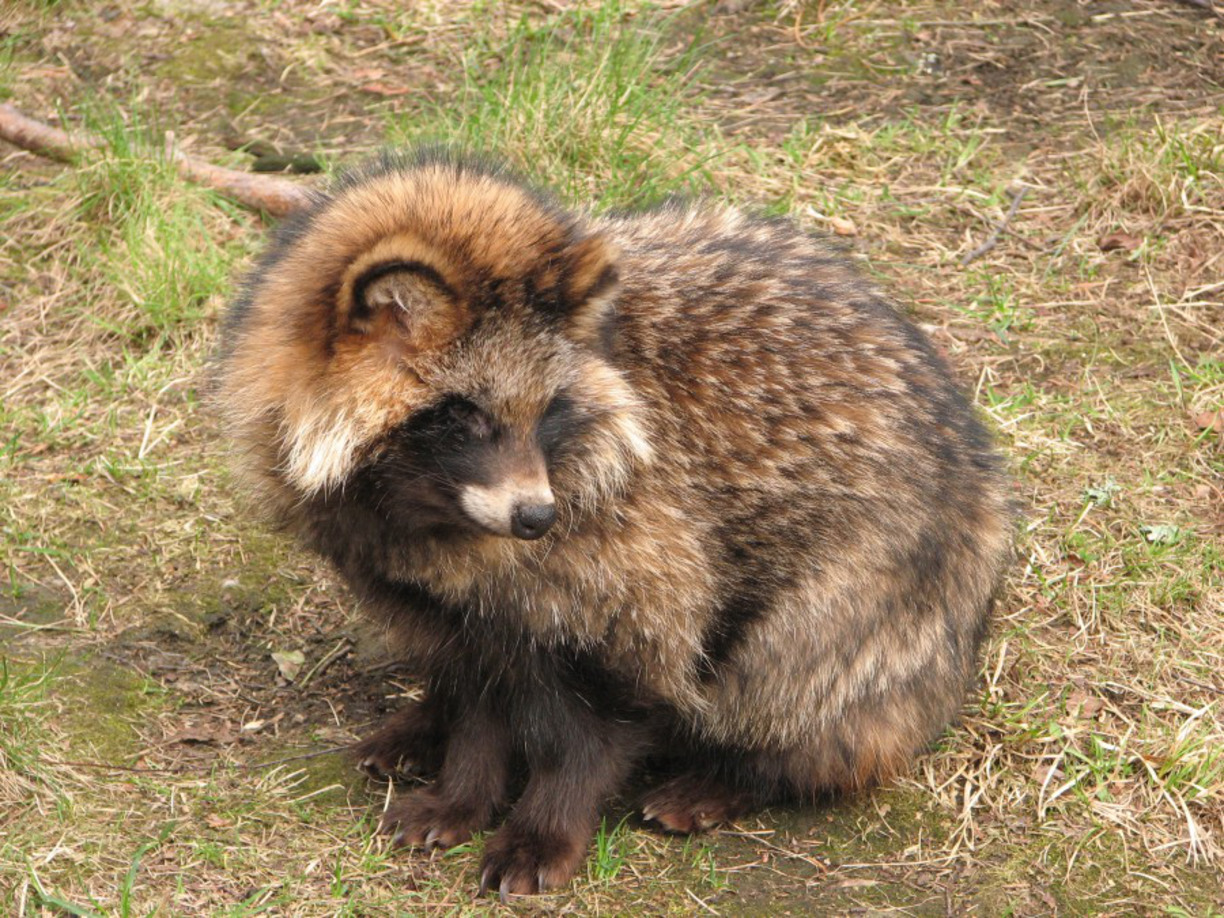
The common raccoon dog is originated from Asia. It is a threat to amphibians and ground-nesting birds. It occurs in northern Sweden but is now in sharp decline. Photo: Jukka A. Lång/Wikimedia Commons
5 April 2023
The protection against invasive species is difficult to apply in the law
Invasive alien species are a threat to biodiversity. In Sweden, common raccoon dog, swallow-wort and giant hogweed are examples that many people are familiar with. A new dissertation in jurisprudence at Luleå University of Technology, shows that the regulations that are supposed to prevent the spread of invasive alien species contain contradictions or end up in conflict of values with other regulations. As a consequence the regulations become difficult to apply. It increases legal uncertainty and makes it more difficult to achieve the legislation's goal – biodiversity.
- The portal paragraph of Miljöbalken (the Swedish Environmental Code) expresses, for example, a contradictory view of nature where, on the one hand, nature has value only if it is useful for humans, and on the other hand, that nature has value in itself, independent of humans, says Caroline Gardelli, researcher in Jurisprudence and author to the thesis.
Invasive alien species are species that humans, intentionally or unintentionally, have moved from their original environment into an environment where the species spreads rapidly at the expense of the native species. They can cause serious damage to ecosystems, infrastructure, the economy and human health. Invasive alien species are one of the biggest threats to biological diversity, both in Sweden and globally, and the number of invasive species is constantly increasing. The protection of biological diversity is regulated at both international, EU and national level.
Requests preventive measures
The thesis primarily analyses the regulations in Miljöbalken, the Convention on Biological Diversity, the World Trade Organisation's (WTO's) free trade agreement and the EU Invasive Alien Species Regulation. In the thesis, people who work with policy issues concerning invasive alien species are interviewed at the Swedish Board of Agriculture, the Swedish Forestry Agency, the Swedish Environmental Protection Agency and the Ministry of Enterprise.
The interviewees request increased preventive measures, including monitoring and risk assessment, as well as a clearer division of responsibilities between the authorities. During the thesis work, a new EU regulation regarding invasive species was introduced. Caroline Gardelli notes that it has strengthened protection against invasive species, among other things by making the division of responsibilities between authorities clearer.
The Precautionary Principle vs the Free Trade Agreement
The so-called precautionary principle expressed in Miljöbalken could be invoked to introduce controls and bans that reduce the risk of the spread of invasive alien species as a result of trade. Caroline Gardell's analysis shows, however, that the precautionary principle may come into conflict with the WTO's free trade agreement, which requires "sufficient scientific evidence" concerning the threats posed by trade, in order for trade barriers to be maintained. Furthermore, she shows that the new EU regulation has not strengthened the precautionary principle. She instead highlights case law within the framework of the WTO as a feasible path:
- The precautionary principle could be strengthened if loss of biodiversity was included as an acceptable reason for restricting free trade. There is no case law where protection against invasive alien species has been tested against the right to free trade. On the other hand, there are legal cases within the WTO where international agreements outside the WTO have been used to interpret concepts. In the same way, one could let the convention on biological diversity influence the view of what evidence is required before trade can be restricted. The argument is strengthened by the fact that basically all WTO countries have signed the Convention on Biological Diversity.
Studying pests in forestry
The thesis contains a special study of the regulation of invasive plant pests in forestry. Forest seedlings are grown in so-called forest nurseries before they are planted in the ground. Forest nurseries provide a favourable environment for the spread of fungi, mosses and weeds. The regulation of so-called quarantine pests is strict, while a large number of other pests are not covered by the regulation. Rather, the spread of pests is facilitated by the WTO's regulations encouraging international trade in plants.
People who work at forest nurseries in Sweden have been interviewed. Several of them are calling for increased opportunities to use pesticides. According to Caroline Gardelli, the precautionary principle could be applied to allow the use of a prohibited pesticide under the emergency exemption rule if an invasive species risks threatening biodiversity. However, she does not believe that it is a viable path in the longer term.
Published:
Updated:

